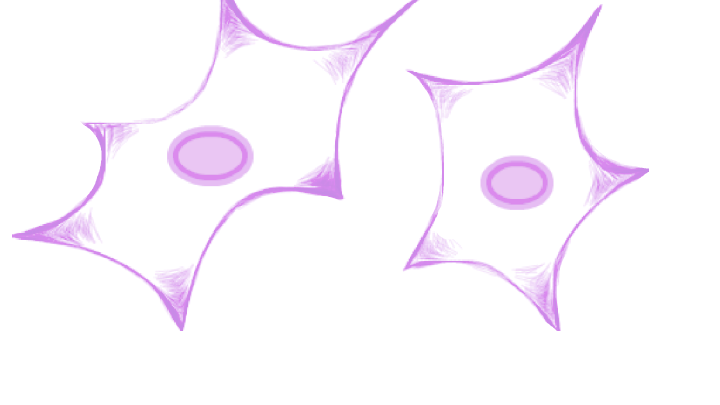Cell Senescence Entries for CDK2
- Cell Types
- Foreskin fibroblast
- Cell Lines
- Primary cell
- Cancer Cell?
- No
- Method
- Overexpression
- Type of senescence
- Oncogene-induced, Replicative, Stress-induced
- Senescence Effect
- Inhibits
- Primary Reference
- Zalzali et al. (2015) CDK2 transcriptional repression is an essential effector in p53-dependent cellular senescence-implications for therapeutic intervention. Mol Cancer Res 13(1)29-40 (PubMed)
CDK2 Gene Information
- HGNC symbol
- CDK2
- Aliases
- Common name
- cyclin dependent kinase 2
- Entrez Id
- 1017
- Description
- This gene encodes a member of a family of serine/threonine protein kinases that participate in cell cycle regulation. The encoded protein is the catalytic subunit of the cyclin-dependent protein kinase complex, which regulates progression through the cell cycle. Activity of this protein is especially critical during the G1 to S phase transition. This protein associates with and regulated by other subunits of the complex including cyclin A or E, CDK inhibitor p21Cip1 (CDKN1A), and p27Kip1 (CDKN1B). Alternative splicing results in multiple transcript variants. [provided by RefSeq, Mar 2014].
CDK2 Ontologies
- Gene Ontology
-
Process: GO:6468; protein phosphorylation
GO:16310; phosphorylation
GO:7049; cell cycle
GO:51301; cell division
GO:6281; DNA repair
GO:6974; cellular response to DNA damage stimulus
GO:6260; DNA replication
GO:51321; meiotic cell cycle
GO:18105; peptidyl-serine phosphorylation
GO:82; G1/S transition of mitotic cell cycle
GO:122; negative regulation of transcription by RNA polymerase II
GO:6813; potassium ion transport
GO:8284; positive regulation of cell population proliferation
GO:32298; positive regulation of DNA-dependent DNA replication initiation
GO:45893; positive regulation of transcription, DNA-templated
GO:51726; regulation of cell cycle
GO:7165; signal transduction
GO:10468; regulation of gene expression
GO:7099; centriole replication
GO:90398; cellular senescence
GO:51298; centrosome duplication
GO:86; G2/M transition of mitotic cell cycle
GO:7265; Ras protein signal transduction
GO:31453; positive regulation of heterochromatin assembly
GO:31571; mitotic G1 DNA damage checkpoint signaling
GO:71732; cellular response to nitric oxide
GO:16572; histone phosphorylation
GO:10389; regulation of G2/M transition of mitotic cell cycle
GO:1905784; regulation of anaphase-promoting complex-dependent catabolic process
Cellular component: GO:5654; nucleoplasm
GO:5813; centrosome
GO:5634; nucleus
GO:5737; cytoplasm
GO:5768; endosome
GO:5856; cytoskeleton
GO:15030; Cajal body
GO:5815; microtubule organizing center
GO:307; cyclin-dependent protein kinase holoenzyme complex
GO:781; chromosome, telomeric region
GO:793; condensed chromosome
GO:805; X chromosome
GO:806; Y chromosome
GO:5667; transcription regulator complex
GO:97123; cyclin A1-CDK2 complex
GO:97124; cyclin A2-CDK2 complex
GO:97134; cyclin E1-CDK2 complex
GO:97135; cyclin E2-CDK2 complex
GO:5829; cytosol
Hide GO termsFunction: GO:166; nucleotide binding
GO:4672; protein kinase activity
GO:5524; ATP binding
GO:4674; protein serine/threonine kinase activity
GO:16301; kinase activity
GO:46872; metal ion binding
GO:4712; protein serine/threonine/tyrosine kinase activity
GO:16740; transferase activity
GO:106310; protein serine kinase activity
GO:5515; protein binding
GO:287; magnesium ion binding
GO:4693; cyclin-dependent protein serine/threonine kinase activity
GO:30332; cyclin binding
GO:19904; protein domain specific binding
GO:35173; histone kinase activity
GO:97472; cyclin-dependent protein kinase activity
Homologs of CDK2 in Model Organisms
In other databases
- CellAge gene expression
- This gene is present as CDK2
External links
- OMIM
- 116953
- Ensembl
- ENSG00000123374
- Entrez Gene
- 1017
- UniGene
- 689624
- 1000 Genomes
- 1000 Genomes
- HPRD
- GenAtlas
- CDK2
- GeneCards
- CDK2
